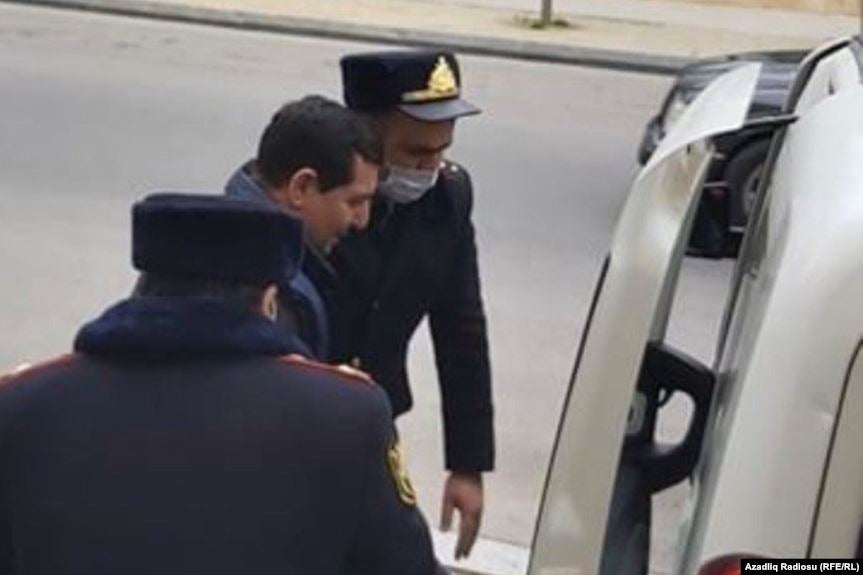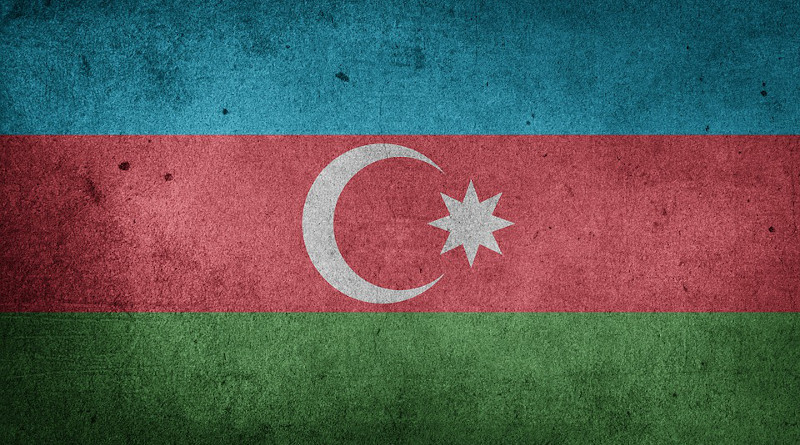Azerbaijan: Crackdown On Critics Amid Pandemic, Warns HRW
Azerbaijani authorities are abusing restrictions imposed to slow the spread of Covid-19 to arrest opposition activists and silence government critics, Human Rights Watch said. In recent weeks, the authorities have sentenced at least six activists and a pro-opposition journalist to detention for between 10 and 30 days on spurious charges including breaking lockdown rules or disobeying police orders.
Almost all of those arrested had criticized conditions in government-run quarantine centers or the government’s failure to provide adequate compensation to people struggling financially from the consequences of the pandemic. Among them was a man who left his house to take his child, who has a chronic health condition, to a hospital for daily treatment.
“These arrests fall squarely within a longstanding pattern of political retaliation in Azerbaijan,” said Giorgi Gogia, associate Europe and Central Asia director at Human Rights Watch. “The authorities should stop using a public health emergency as a pretext to punish legitimate speech.”
Human Rights Watch reviewed court documents and spoke to the family members and lawyers of seven government critics arrested since March 22 on spurious administrative charges of violating the lockdown or disobeying police orders. All but one remains in detention.
The arrests followed President Ilham Aliyev’s earlier comments indicating he would use measures supposedly designed to tackle the coronavirus pandemic to crack down on the opposition. It is another disturbing example of the government’s contempt for free speech and political critics.
Arresting people for violating Covid-19 emergency measures may actually increase disease transmission if the authorities place people in crowded detention facilities where the virus could spread easily, Human Rights Watch said. Both regional monitoring bodies and national groups have criticized conditions in Azerbaijan’s detention facilities for administrative detainees as poor and inappropriate for the length of sentences imposed.
Azerbaijan confirmed its first Covid-19 case on February 28, 2020, and had 1,253 confirmed cases as of April 15. The government has put in place a series of social distancing measures, including a ban on gatherings of more than 10 people, and on nonessential travel to the capital, Baku, and surrounding districts.
On April 5, the authorities also introduced an electronic permit system, which requires people to call or text a government hotline for an electronic pass before leaving home. The pass is available only once a day and is valid for two hours to seek medical treatment, buy medicine or groceries, go to the bank or post office, or attend the funeral of a close relative.
On March 16, parliament passed amendments to the code of administrative offenses, providing for fines of 100 to 200 manat (approximately US$ 60-to-120) or detention for up to 30 days for violating a lockdown regime. A court determines and hands down the sanctions. But trials for administrative or misdemeanor offenses are perfunctory, rarely lasting longer than a few minutes, and police testimony is often the sole evidence. The trials in these cases were no different, Human Rights Watch said.
According to the Interior Ministry, in March, 154 people were jailed, and thousands were fined for violating the lockdown regime.
On March 22, the police summoned Anar Melikov, a member of the opposition Azerbaijan Popular Front Party (APFP) from Jalilabad, a city in southern Azerbaijan. Melikov told Human Rights Watch that he had published posts on social media criticizing the poor and unsanitary conditions in the city’s quarantine centers, where Azerbaijanis returning from abroad are kept in isolation. At the station, police questioned Melikov mostly about his Facebook posts, and charged him with disseminating false information regarding the virus. A court sentenced him to 10 days in jail.
On April 6, the police arrested Shakir Mammadov, a member of the opposition Azerbaijan Democracy and Welfare Movement, near his house and demanded that he delete his critical Facebook post calling on the government to assist vulnerable families during the lockdown. Mammadov’s lawyer told Human Rights Watch that his client was on his way to a drugstore, after receiving official permission via text message, when policemen in civilian clothes picked him up. Two policemen claimed that Mammadli used inappropriate language and was aggressive toward law enforcement officials, and a court sentenced him to 15 days.
Police detained APFP member Faig Amirli on April 8, around 7 p.m., when he took out the garbage in his slippers to a bin 100 meters from his house. Amirli’s wife told Human Rights Watch that their neighbor saw a man in civilian clothes grab Amirli and push him into one of three cars that had stopped near him, which then drove away. The family repeatedly called the Interior Ministry hotline and various police stations, but could not locate Amirli until late the next afternoon. Police confiscated Amirli’s phone, did not allow him to call his wife or a lawyer, and took him to court, where he was sentenced to 30 days for violating the lockdown regime.

Police detained Nijat Abdullayev, another APFP member, on April 10 as he was on his way to a supermarket and charged him with violating the lockdown rules and resisting police. His lawyer told Human Rights Watch that after Abdullayev, in court, produced the text message permit to leave home, the court dismissed that charge, but sentenced him to 30 days’ detention on the resistance charge. Abdullayev vehemently denied he had offered any resistance to the police.
An APFP activist, Ruslan Amirov, was also arrested on April 10. He had an electronic authorization to take his 12-year-old child, who has a chronic health condition, to a hospital for his daily treatment. Police apprehended Amirov together with his child, after they left the hospital in a cab. They took Amirov to a police station, and then took his crying child to Amirov’s sister’s house. Amirov’s lawyer told Human Rights Watch that Amirov showed the judge his electronic authorization and the child’s medical history, but the court still sentenced him to 30 days for violating the lockdown regime.
Police arrested Natig Isbatov, a journalist for the pro-opposition 7gun.az news website, on April 9, when he filmed a protest in front of a municipal office in Baku. Protesters were demanding financial support during the quarantine period. Isbatov was not allowed to call his family or a lawyer and a court sentenced him to 30 days for violating the lockdown regime and disobeying police. His lawyer was only able to reach him five days later in detention. Isbatov denied disobeying the police. Accredited journalists can be exempted from the lockdown regime, but most pro-opposition or independent journalists cannot obtain accreditation.
Police arrested a youth activist, Nariman Abdulla, on April 10 in Lankaran, southern Azerbaijan. A friend of Abdulla told Human Rights Watch that police picked Abdulla up at his home and that a court sentenced him to 10 days in jail on charges of violating the quarantine. Abdulla had been very critical of the authorities on social media, particularly over the insufficient social programs during the quarantine.
These arrests took place in the three weeks after President Ilham Aliyev addressed the nation on March 19 about the challenges posed by Covid-19. In his speech, Aliyev called the opposition traitors, enemies, and a fifth column that might try to destabilize the country. He strongly implied that he would use the fight against the virus to crack down on the country’s political opposition.
Azerbaijan’s process to seek permission to leave one’s house excessively restricts movement and personal liberty, Human Rights Watch said. The authorities should instead simply require residents to self report why they need to leave their homes.
Using imprisonment as a sanction for violating a lockdown is counterproductive and goes against the recent recommendations by United Nations and Council of Europe expert bodies, urging the authorities to make concerted efforts “to resort to alternatives to deprivation of liberty.”
“Imprisoning people as a coercive measure, let alone for legitimate speech, is wrong and does not promote public trust in the authorities,” Gogia said. “Detention is also completely counterproductive and puts people more in harm’s way. The authorities should immediately release those in detention on misdemeanor violations and end the political use of restrictive measures.”

